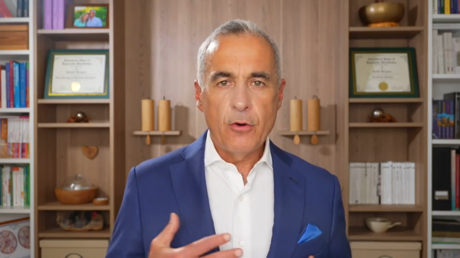ARTICLE AD BOX
Federal and state authorities are investigating a wave of bigoted text messages sent anonymously that have spread alarm among Black Americans across the country this week, officials and recipients told Reuters.
The messages urged recipients in multiple states, including Alabama, North Carolina, Pennsylvania and Virginia, to report to a plantation to pick cotton, an offensive reference to past enslavement of Black people in the United States.
It is unclear who is behind the reported texts, how many people had received them, or how the recipients were targeted.
The Federal Communications Commission said on Friday its enforcement bureau was among those probing the incidents.
Lousiana Attorney General Liz Murrill, a Republican, told Reuters on Friday that her office is among those investigating the text messages, adding that some targets - herself included - also received emails.
Murrill, who is white, said one of the messages hit her personal email box at 8:17 a.m. Friday, according to a screenshot of the message she shared with Reuters.
The message greeted her with an ethnic slur and said "Now that trump is president, you have been selected to pick cotton at the nearest plantation" and that "Our guys will come get you in a van."
She said the FBI was also looking into the messages.
The FBI on Thursday said in a statement it was "aware of the offensive and racist text messages sent to individuals around the country," and that it was in contact with the Justice Department and other federal authorities on the matter.
"It could be coming from a basement in Baton Rouge, or it could be a basement in Bangladesh," said Murrill. "It's obviously intended to play on people's emotion in the wake of the election. I'm urging people to rise above it, don't give these malcontents the benefit of capturing any of emotional bandwidth."
Monèt Miller, an Atlanta-based publicist, said that when she shared on social media that she had received a text message telling her to report to her "nearest plantation," she was shocked at how many other Black Americans chimed in to say they had gotten similar messages.
"To find out that all these African American people are getting it, that was the scariest part about it," she said. "Who is doing that?"
People in at least 21 states received the texts, including high school and college students, CNN and the Associated Press reported.
"These actions are not normal. And we refuse to let them be normalized," NAACP President Derrick Johnson said in a statement from the civil rights organization, which advocates for racial justice and rights for Black Americans.
"These messages represent an alarming increase in vile and abhorrent rhetoric from racist groups across the country."
Some Black Americans have said they fear a rollback of civil rights after Republican Donald Trump, who won Tuesday's presidential election over Democrat Kamala Harris, takes office on Jan. 20. Trump, who made racist and sexist attacks against his Black opponent, has pledged to end federal diversity and inclusion programs.
"President Trump's campaign has absolutely nothing to do with these text messages," his spokeswoman Karoline Leavitt said in a statement on Friday.
At least some of the messages were distributed via the TextNow messaging service, which enables people to send texts via app, TextNow said. It said once they were made aware of the situation the account or accounts responsible were shut down within an hour, adding that the texts were sent across multiple carriers nationwide in what it called "an attack."
Some school districts issued warnings and urged students and parents to report any such texts to school staff or local authorities.
The run-up to Tuesday's election included the biggest rise in U.S. political violence since the 1970s, including some racist attacks on Harris supporters, according to cases identified by Reuters.
(This story has not been edited by NDTV staff and is auto-generated from a syndicated feed.)
.png)
 2 weeks ago
1
2 weeks ago
1








 English (US)
English (US)